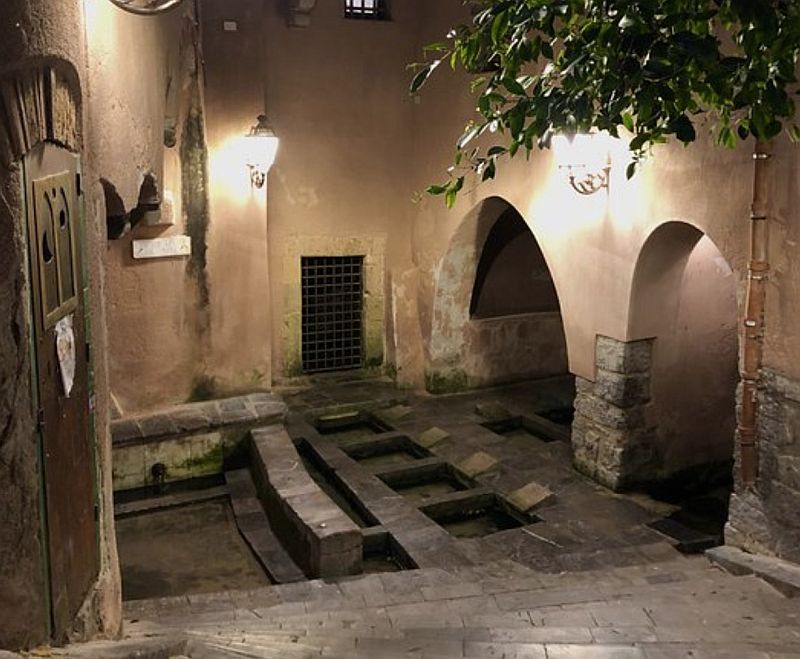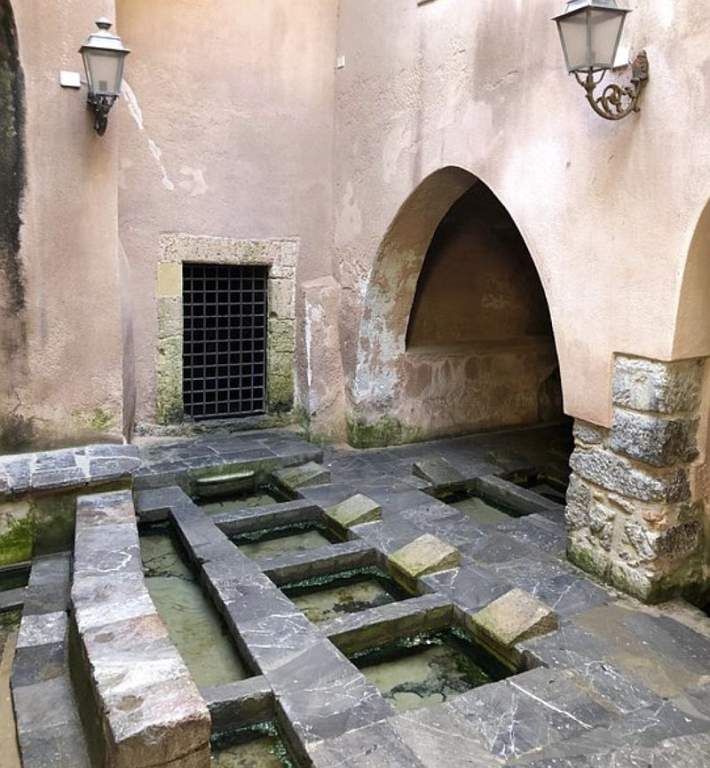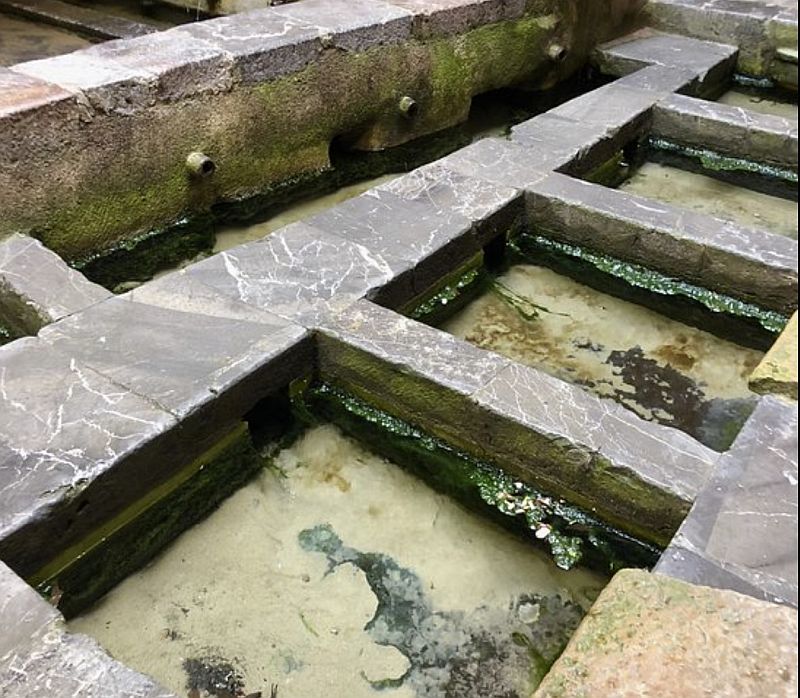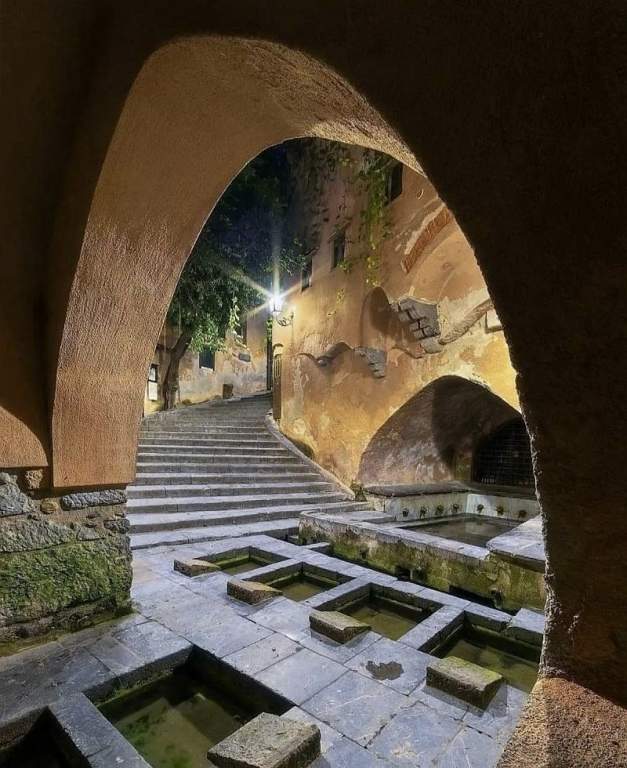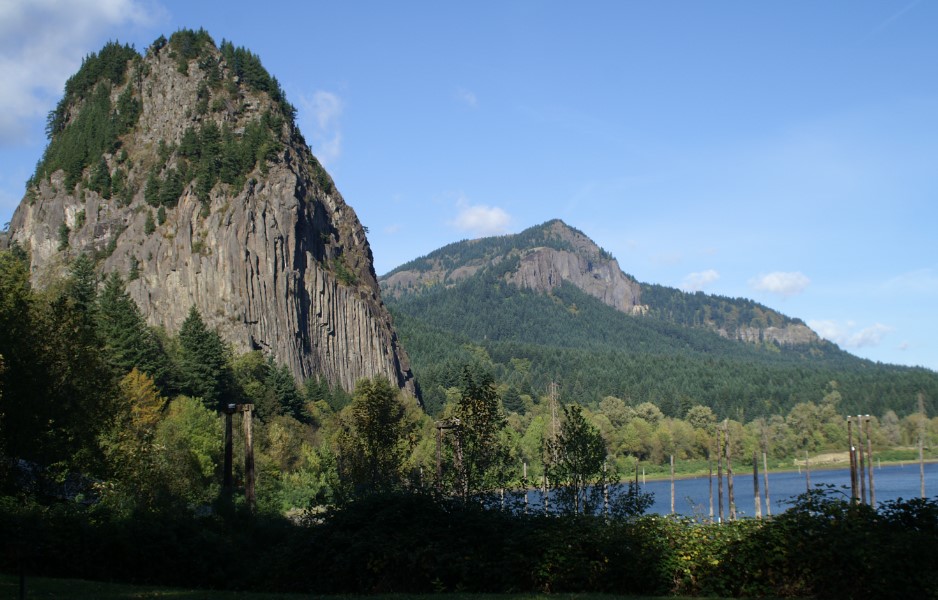We believe most of you haven’t heard about the ancient washhouse of Cefalù in Sicily, Italy. Cefalù is a small beach town where a public laundry was built in 1514 CE on top of a similar structure that was destroyed to remodel hydraulics and route soapy waters straight into the sea. It looks simply magnificent. It features individual vats for soaping and scrubbing cloths, as well as huge communal ones for rinsing, where water runs through twenty-two cast-iron mouths, the majority of which resemble lion heads.
The ancient town was populated by the original Greek-speaking Byzantine Christians, Muslims, and Roman Catholic Normans, who were all French-speaking. A very cold natural water spring emerges from the back wall and flows underneath it all, sweeping any dirty or sudsy water into the sea. The stairs shielded the spot, making it pleasant on hot summer days. But, in the winter, the river’s water was probably extremely cold, and the women who did their laundry by hand were suffering greatly. After the restoration work was finished in 1991, the site was improved to better serve as a representation of medieval Sicilian life for the thousands of tourists that visit Cefalù each year.
The washhouse of Cefalù is situated below street level, and there is a plaque at the entrance stating that the “river” originates from an underground supply of sweet water that has been recognized since ancient times. This is an interesting and challenging site that will captivate your imagination as you try to imagine what it was like to wash laundry some 500 years ago. The locals call the river Cefalino, and there is a superstition that it was formed by the tears of a nymph who was sorry for killing her betrayer. Another sign indicates that the washing area was mostly utilized during the Arab-Norman era, implying that the original plan was erected when Cefalù was part of the Emirate of Sicily, an Islamic power that governed the island from 831 to 1090 CE.
Emirate was part of a huge dynasty of emirs known as the Aghlabids, who eventually controlled coastal portions of today’s eastern Algeria, Tunisia, and western Libya, known as Ifriqiya, as well as the entire island of Corsica, Sicily, Calabria, and Puglia. They implemented land reforms that encouraged smallholdings and increased productivity, enhanced irrigation systems, and established oranges, lemons, pistachios, and sugarcane. Also, they established Palermo as their capital, which grew to become one of Europe’s largest cities at the time, second only to Córdoba and Constantinople. Once a regular routine in the past, it serves as a tangible reminder of the beach community of Cefalù’s unbroken history today.
It is thought that wealthy families once hired some poor women to do this labor-intensive task. These women were washing carpets, curtains, and laundry all day long for a living, and the cold water likely caused them to develop arthritic finger joints. Imagine the local ladies coming here in the past to wash their clothes; it must have been a very busy and noisy place.
Under the covered vault, you can see cast iron mouths spouting water into troughs, and through the middle runs the River Cefalino. Thus, among the many charms of the ancient washhouse of Cefalù, it is acknowledged as one of Italy’s most beautiful locations—a site where art, culture, and history all coexist peacefully and where tourism is always thriving.
Read More: Padirac Chasm Cave – France
